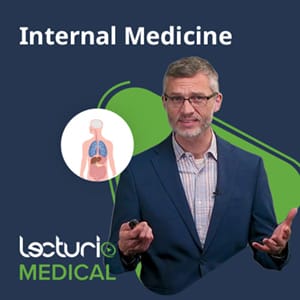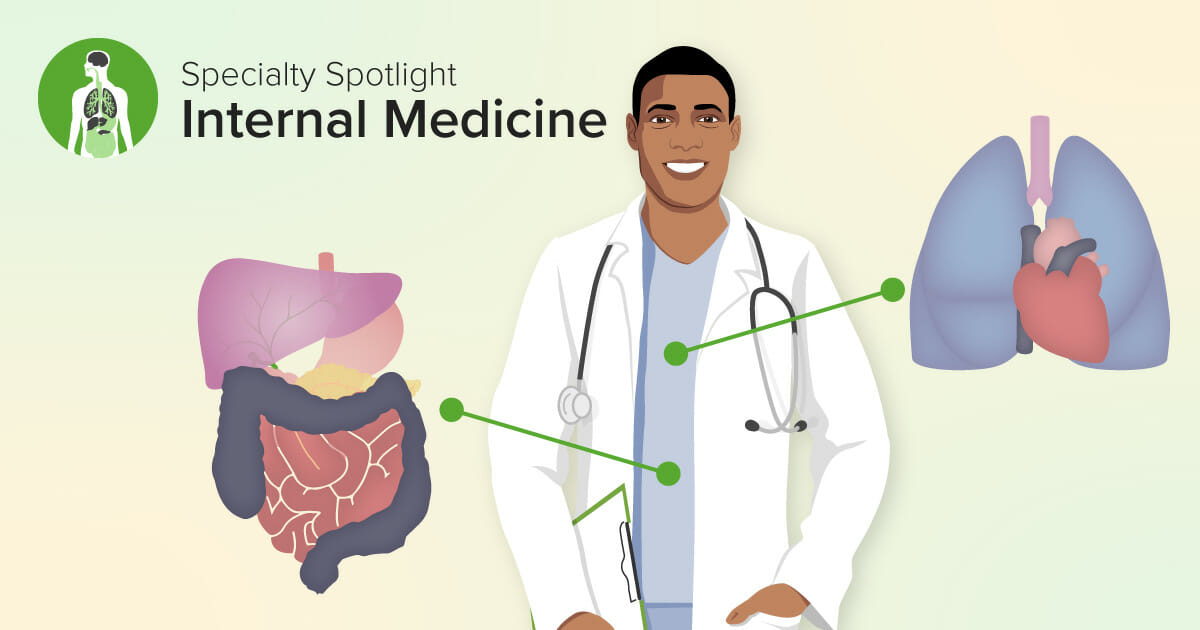Do you have to do a fellowship after residency? The short answer: no, you don’t have to! While most internal medicine residents will go on to fellowship, the remainder will enter practice right out of residency. The job options for those finishing residency are as varied as the field itself.
How Do I Decide What I Want to Do After Residency?
If you’ve already decided not to pursue a fellowship after residency, you might be wondering what your other options are. The first step in finding this out is to decide whether you prefer caring for hospitalized patients or outpatients. Think back on your residency experience.
- When did you feel the most energized and excited about your job? Was it when you got your continuity clinic patient’s A1c under 7%, or when you finally made a difficult diagnosis for a hospitalized patient nobody else could quite figure out?
- Do you enjoy teaching medical students and residents or focusing directly on patient care?
- Have you always wanted to run a busy clinic, or would you rather be a hospital employee?
Thinking about these questions will help you narrow down whether an outpatient, inpatient, academic, or private practice setting is the best choice for you.

Take the Course: Internal Medicine
Develop a clinician’s mindset to apply medical knowledge to complex cases and provide optimal patient care
What Types of Jobs are Available After Residency?
There are three major types of jobs available after residency:
- Inpatient (also called “hospitalist”)
- Outpatient (“primary care”)
- “Traditional” jobs (a mix of inpatient and outpatient care)
Hospitalist physicians see acute patients when they require hospital-level care.
These physicians are typically employed by a hospital directly or are contracted, either alone or as a group. A usual schedule for a hospitalist is a “7-on-7-off” call structure where you work for seven days, then are off for seven days. You might have other responsibilities during your “off” days or not, depending on the employer.
Primary care physicians typically work in an office-based setting and see patients over many years.
Unlike hospitalists, these doctors manage chronic diseases and acute illnesses that are not severe enough to require hospitalization. Primary care physicians can be employed, partners in a group of physicians, or independent practitioners. They work regular “office hours” of 9-5, Monday through Friday, though some also offer extended hours with an evening clinic during the week or weekend clinic hours. They are also “on-call” for patients and must be available by phone outside regular business hours. The frequency and difficulty of “on-call” work vary substantially depending on the group.
Traditionally, internists work in a clinic and saw their primary care patients when they were admitted to the hospital.
Those “traditional” jobs still exist nowadays, especially in rural areas, but they are more difficult to find than hospitalist or primary care jobs.
Academic Medicine vs. Private Practice
In addition to the type of job, you must also decide whether to continue in academic medicine or private practice. As a general rule, in academic medicine you interact daily with other faculty members, residents, and medical students. Doctors in academic medicine typically work for a university or teaching hospital. Promotion and reappointment can require scholarly work, clinical awards, and resident teaching. Salaries are generally lower than equivalent positions in private practice.
Private practice involves taking care of patients directly, usually at a higher volume than in academic medicine. With the higher volume usually comes a higher salary, and there is typically no expectation or requirement to publish research or teach medical students or residents. In recent years, the distinction between academic medicine and private practice has become blurred. Many jobs now offer a mix of both.
How are Doctors Paid After Residency?
Physician compensation after residency depends primarily on how they are employed. Doctors can be employees of a hospital, insurance company, or another physician. They can also be contractors for any of the above or run their own business entirely, billing patients or insurances directly for their services. Each compensation model comes with benefits and tradeoffs.
While a hospital-employed doctor usually enjoys a more consistent salary, paid time off, and less on-call time due to a larger pool of covering physicians, they might not have as much control over their day-to-day schedule, office staff, or benefits, since all of these things are controlled by the employer. Conversely, while the business-owner doctor typically has more control over their office hours, benefits plans, vacation time, and staff, they might have a less stable income or more headaches dealing with these administrative issues. When searching for jobs, be sure to discuss payment structure with potential employers to ensure you understand and are comfortable with the agreement.
What is the Salary After Residency?
As an internal medicine resident, you are probably used to making between 55-60k a year. The first year after internal medicine residency, your salary will likely range from 200-250k a year. Keep in mind that this number can vary substantially depending on the type of job you have taken. In contrast to some other fields, salaries for physicians in larger cities tend to be lower due to the high saturation of doctors, while rural doctors tend to make more money due to the high demand for their services. If you see a job posting advertising a much higher salary than average, be sure to check carefully for a catch. Sometimes, the high salary is contingent on staying in the job a certain number of years, or it requires an extensive amount of travel time or commute, or it has onerous productivity or on-call requirements. An atypical salary is a warning sign of an atypical amount of expected work.
When to Start Looking for Jobs After Residency
It’s good to start your job process before your final year of residency. Starting earlier gives you ample time to weigh the options, get your contract reviewed by a lawyer, and complete any licensing or credentialing requirements before starting your brand-new job. At the start of your search, think about the job setting and geographic location you would be interested in after residency. Once you’ve decided on these things, you can get to work on crafting a CV to send to prospective employers. Allow yourself a few months to complete interviews, negotiate your contract, and sign an offer. While it can be tempting to sign an offer early on, be sure to take your time evaluating all of your options before committing to one.
If you already know you’ll need to be in a specific city, start your job search earlier rather than later. If the area is particularly in need of doctors, an early signing can net you a stipend during residency or a one-time sign-on bonus!
How to Find a Job After Residency
While the most obvious resource for finding a job after residency is to search online, the best jobs are often not posted in recruitment ads or on job sites. Reaching out to your local network of mentors is an excellent first step during the job search. This approach is particularly helpful if you want to stay in the same geographic area after residency or if you are looking to stay in academic medicine after you graduate.
Recruiters can also be a helpful resource, especially if you are interested in a location far away from where you currently live – visiting a job fair either virtually or in-person is a great way to connect with them.
Hospital systems generally also have a recruiting department that can alert you to openings. Consider contacting your local medical society to see if any practices are hiring. Networking with local doctors is an underutilized way to connect with doctors in your community who don’t have the same online presence or recruiting department as a large hospital or company.
You can also look in the back pages of medical journals and magazines to find “help wanted” ads in print. Of course, there is always the old standby of opening your own office after you finish as well – resources are available through a professional society such as the American College of Physicians or various online courses and webinars.
When it comes to the job search after residency, a little preparation goes a long way. Thinking about your desired job setting and compensation model and starting the job search early are just the first steps. Engaging online, print, and word-of-mouth sources will give you the best chance of finding the right job for you.
Taking the time to fully evaluate all of your opportunities will pay dividends in the long run!
What if a clinical career is not for you after all? Take a look at our Guide to the Alternatives to Medical School and Clinical Practice.
At a Glance: Subspecialties of Internal Medicine
As an internal medicine physician you can either choose to practice general internal medicine or acquire a further certification to practice in a more specialized field.
Subspecialties can be distinguished by whether they are certified exclusively by the American Board of Internal Medicine or in association with other specialty boards.
Subspecialties solely certified by the American Board of Internal Medicine:
- Adult Congenital Heart Disease
- Advanced Heart Failure and Transplant Cardiology
- Cardiovascular Disease
- Clinical Cardiac Electrophysiology
- Endocrinology, Diabetes and Metabolism
- Gastroenterology
- Hematology
- Infectious Disease
- Interventional Cardiology
- Medical Oncology
- Nephrology
- Pulmonary Disease
- Rheumatology
Subspecialties jointly developed by the American Board of Internal Medicine and other boards:





